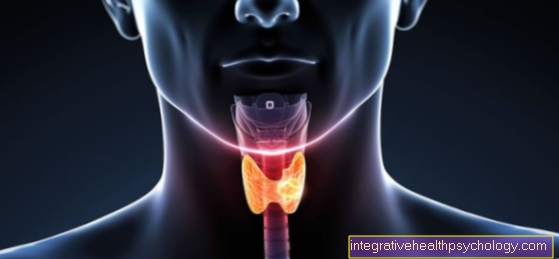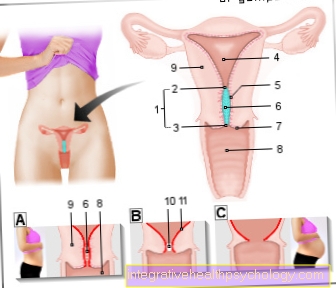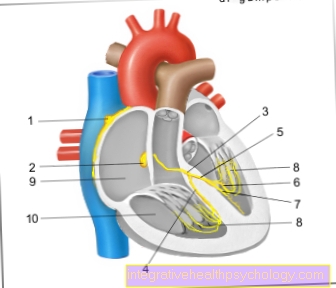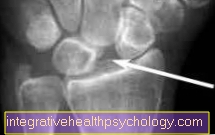What is life expectancy with a bypass at heart?
introduction
A bypass operation on the heart is a major medical procedure that can usually be necessary as the last treatment method for a serious disease of the coronary arteries (coronary artery disease). The operation is only considered in the case of a very advanced heart disease or a severe heart attack, if other measures (cardiac catheter) do not succeed.
Therefore, patients who are bypassed are in many cases already seriously ill and life expectancy is limited compared to people without heart disease. However, the procedure can often significantly improve life expectancy.
Please also read: Life expectancy in coronary heart disease

What is the general life expectancy after bypass surgery?
It is not possible to make a general statement about how long the life expectancy is after heart bypass surgery, as too many individually different influencing factors play a role. The actual operation and the first few days after the procedure are particularly critical.
Despite all the professionalism and extensive experience in open heart surgery, bypass surgery is a procedure with a relatively high risk.
About 10% of people who undergo open heart surgery die in the procedure.
In addition, even if the operation went well, complications that are also life-threatening can still occur in the days after the operation.
However, if the procedure is survived well and the healing phase goes as desired, life expectancy with a bypass at the heart can be several decades. However, this depends largely on the patient's age, comorbidities and lifestyle.
Overall, the procedure can in many cases extend life expectancy by many years.
Nevertheless, the heart disease cannot be cured by the procedure, so that life expectancy can never reach that of a person with healthy heart.
Another aspect when assessing life expectancy after bypass surgery is the blood vessel used for the bypass. Patients who have a thoracic artery transplanted onto the coronary arteries have a better life expectancy than those who only have one endogenous vein from the Leg could be used. The veins are not able to cope with the high stress caused by the blood flow for so long and therefore clog up more quickly.
In some cases, years after a successful bypass procedure, a new operation may be necessary, for example if the bypass has become too narrow.
In such a situation, life expectancy, which would be severely restricted without further intervention, can be extended again.
With all information on life expectancy with a bypass, however, it must be taken into account that it is statistical information that can vary greatly in the positive as well as in the negative sense for the individual patient.
What positively influences life expectancy?
Life expectancy after heart bypass surgery is initially positively influenced by a good surgical result.
The aim of the intervention is to restore a possible good blood flow to the coronary arteries and thus the best possible oxygen supply to the heart muscle.
The better the surgical result, the more the life expectancy is positively influenced.
In addition, a faster and uncomplicated healing process after the procedure has a positive effect. Patients who recover quickly from surgery and will soon become mobile again have a better life expectancy.
For a positive development, the best possible general condition of the patient before the procedure is important. A physically active person with few comorbidities (in addition to severe heart disease) has better prospects of recovery after a bypass operation.
In addition, statistically speaking, life expectancy is higher if a thoracic artery is used for the bypass instead of an endogenous vein.
What has a negative impact on life expectancy?
Factors that have a negative impact on life expectancy after a bypass operation are, for example, older age and a reduced general condition of the patient before the operation.
In addition, life expectancy is worse if the operation had to be carried out in an emergency, for example due to a severe heart attack, than if the operation was planned (elective).
In addition, the extent of the disease of the coronary arteries is important. If there is a narrowing of the main stem, the prospects are worse than if there is a narrowing that affects only a smaller part of the vessels.
In addition, there can always be delayed healing or complications after an open heart surgery, which also has a bad effect on the prognosis.
Furthermore, a poor lifestyle of the patient has a negative impact on life expectancy. Smoking in particular worsens the prognosis significantly. However, a lack of physical activity and an unbalanced diet also lead to a significantly reduced life expectancy.
What can I do myself to have a positive influence on life expectancy?
In order to positively influence your life expectancy with a bypass at the heart, you should follow various things.
The focus is on a lifestyle that is as healthy as possible.
This includes, on the one hand, a balanced and varied diet with lots of vegetables, fruit and little animal fat.
On the other hand, you have a significantly positive influence on your own health and life expectancy through regular physical activity according to your own possibilities.
Cycling, swimming or hiking are good options.
Furthermore, you should absolutely refrain from smoking. Quitting smoking increases life expectancy more than all available drug measures. In addition, alcohol should only be consumed in moderation (at most one beer or one glass of wine a day). In addition to the measures mentioned above, a person with a bypass should ensure that possible concomitant diseases are treated as well as possible.
This includes the regular intake of antihypertensive agents when blood pressure is too high and the best possible adjustment of the sugar levels in diabetes. In addition, lifelong use of a platelet inhibitor (usually aspirin) and a blood lipid reducer is often prescribed, as studies have shown that these can prevent a (renewed) heart attack.
Therefore, regular check-ups by the doctor and the correct intake of the prescribed medication are particularly important. The better the comorbidities can be contained by drug measures, the more positively the life expectancy will be influenced.
At this point it should be mentioned again that the first-mentioned measures of a healthy lifestyle (good nutrition, regular exercise, abstinence from nicotine) all have a positive effect on possible concomitant diseases and thus represent the decisive influencing factors on health and life expectancy after a cardiac bypass.
Recommendations from the editorial team
- Heart attack - you should know that
- Implantation of a stent after a heart attack
- coronary artery disease - what to do?
- Everything about the coronary arteries
- This happens during a cardiac catheter examination

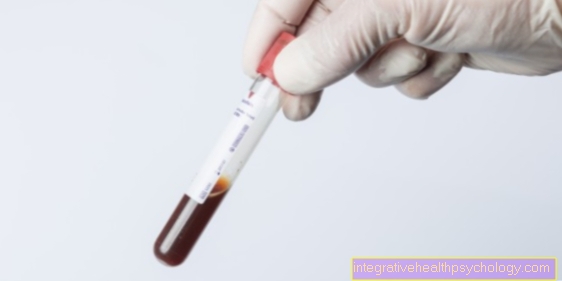



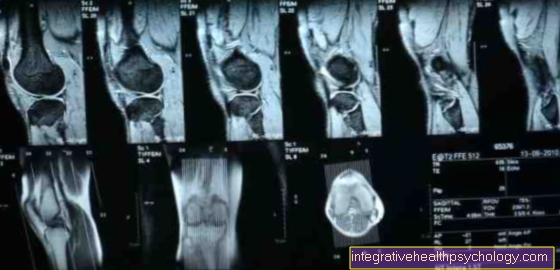
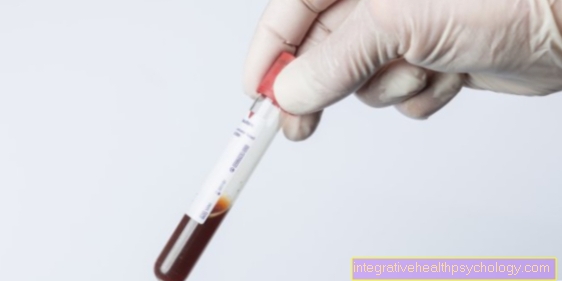



.jpg)
